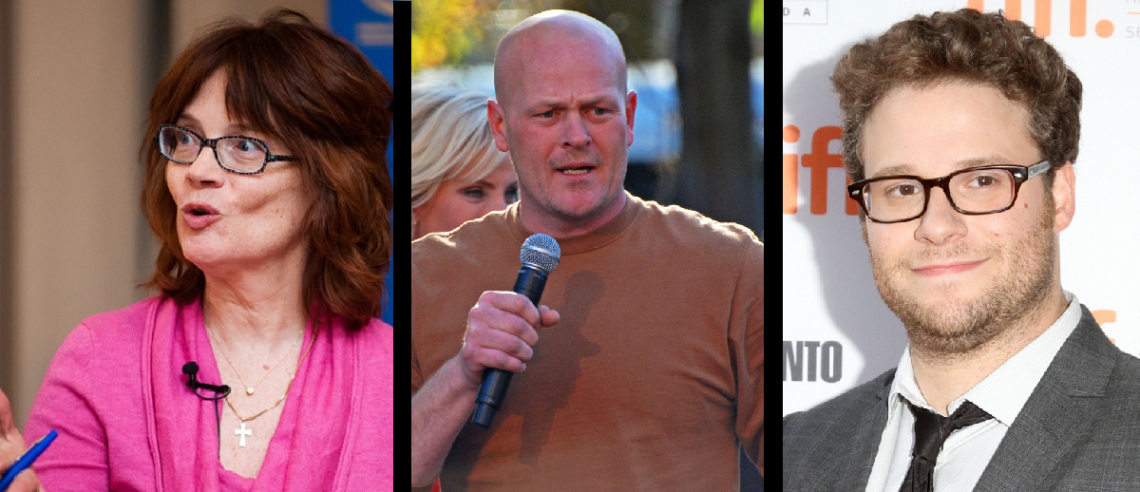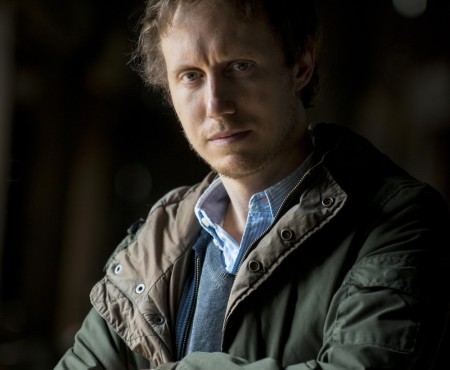Earlier this week, Washington Post film critic Ann Hornaday responded to the crimes of Elliot Rodger by writing a thoughtful op-ed about the pervasive influence of the systemic misogyny in Hollywood. She called out one film by name – Neighbors – which caused star Seth Rogen and his frequent collaborator Judd Apatow to fire back on Twitter. Since then, critics have weighed in, some taking sides, others simply trying to dissolve the tension.
It’s a worthy discussion, but we’ve been here before, haven’t we? The argument over Hornaday’s essay feels a lot like the discussions we were having over violence in film after James Holmes killed 12 people at a movie theater in Aurora, Colorado in 2012. It also is reminiscent of the controversies over Zero Dark Thirty and The Wolf of Wall Street because the conversation isn’t really about violence or misogyny. It’s about what we ask of the movies.
Do filmmakers have a responsibility to uplift, or is it enough for them to entertain us or reflect our flawed society back to us? Regardless of how we may answer the question, the decision makers in Hollywood couldn’t care less. Neighbors was an unqualified hit; whether or not you agree with its casual objectification of women, there are people who will pay to see it, and that’s enough for Hollywood. Same goes for Zero Dark Thirty; if you are concerned that it endorses torture, you need to check your statistics. The majority of American citizens support torture, at least in a “ticking time bomb” scenario (and they supported the film to the tune of $95 million in domestic grosses). And while The Wolf of Wall Street garnered its share of controversy for its perceived celebration of the financial industry’s sins, it was also nominated for 5 Academy Awards, including Best Picture, Best Actor, and Best Director.
Given that Hollywood and the American public seem to have their back, why do filmmakers get so defensive when a cultural critic merely suggests that the movies could play a role in acts of real-life violence? Why do they lash out at the first sign of criticism, as Rogen did to Hornaday, and argue that those searching for solutions to our country’s most disturbing problem should look anywhere but in their direction? Hornaday didn’t place all the blame at Rogen’s feet; she only suggested that the systemic misogyny that courses through the Hollywood system might have an impact on its viewers, using Neighbors as a timely example because this particular shooter targeted a sorority and lamented the fact that he had gone through college as a virgin. And no one has ever accused Quentin Tarantino of murder, but that didn’t stop him from lashing out last year at a journalist who challenged him on the role movie violence has in inspiring real-life mayhem.
It’s almost as if these industry players are afraid of being censored. They seem perpetually prepared to defend themselves from moral crusaders who wish to preside over the dismantling of their creative freedom. Why would they be afraid of this? Because it has happened before, and Hollywood still bears the scars.
In the Roaring Twenties, many Americans were concerned with the impact the still burgeoning film industry was having on the youth. There were several high-profile Hollywood sex scandals (Fatty Arbuckle’s rape and manslaughter trial being the most high-profile), and films were featuring increasing levels of violence and sexual content. After the Catholic League’s Legion of Decency threatened a boycott (and more than 30 state legislatures considered film censorship bills), the industry chose self-censorship, the lesser of two evils, and created the Production Code, a list of items that were forbidden from the screen. The Code was in effect until 1968, when MPAA President Jack Valenti created the Ratings System, but it had already lost its teeth in 1952, when the U.S. Supreme Court ruled that films should be considered free speech. Still, the Code prohibited artists from taking on many important issues of the day, including civil rights and the rise of European fascism.
The Production Code was considered a significant infringement on artistic freedom, but it was nothing compared to the terror of the McCarthy Era. During the infamous Red Scare of the late 1940s and early 1950s, many filmmakers were accused of being Communists by the House Un-American Activities Committee, and others were outed in public by various anti-Communist crusaders. Loyalties were broken and careers were ruined, but the investigation also changed Hollywood’s artistic priorities. After McCarthy’s accusations started flying, studio chiefs quickly greenlit a number of anti-Communist films to prove their loyalty, and any film that contained a speck of anti-capitalist sentiment was shelved.
Although the current studio system contains its own forms of systemic oppression, times are not nearly as bleak as they were during the Production Code or McCarthy eras. The only explanation for why actors and filmmakers are so sensitive to social criticism is that the terror that these past eras of Hollywood history is now ingrained into the industry. Of course, actual censorship of films would be impossible under current conditions, but the threat of government regulation always seems to loom large over the picture. After the killing spree in Aurora, Senate Judiciary Chairman Patrick Leahy promised to call studio chiefs to Washington to testify in hearings about the impact of movie violence on real-life bloodshed. Those hearings never occurred, but government oversight (if not outright regulation) remains a possibility. Criticizing the loose morals of Hollywood has been national sport over the last century, and its current players are well aware of the stakes.
But as young men continue to perpetrate these acts of violence on our society, these questions will and should continue to be asked, especially since both science and common sense clearly indicate that people (especially children) take their cues from what they see on film. Tobacco companies have spent millions paying movie stars to light up on camera, and organizations such as the American Academy of Pediatrics, the American Medical Association, and the American Psychiatric Association all agree that violent entertainment can lead to aggressive behavior. The defensive posture of Seth Rogen and Judd Apatow are understandable, but it does not get us any closer to a solution.



















